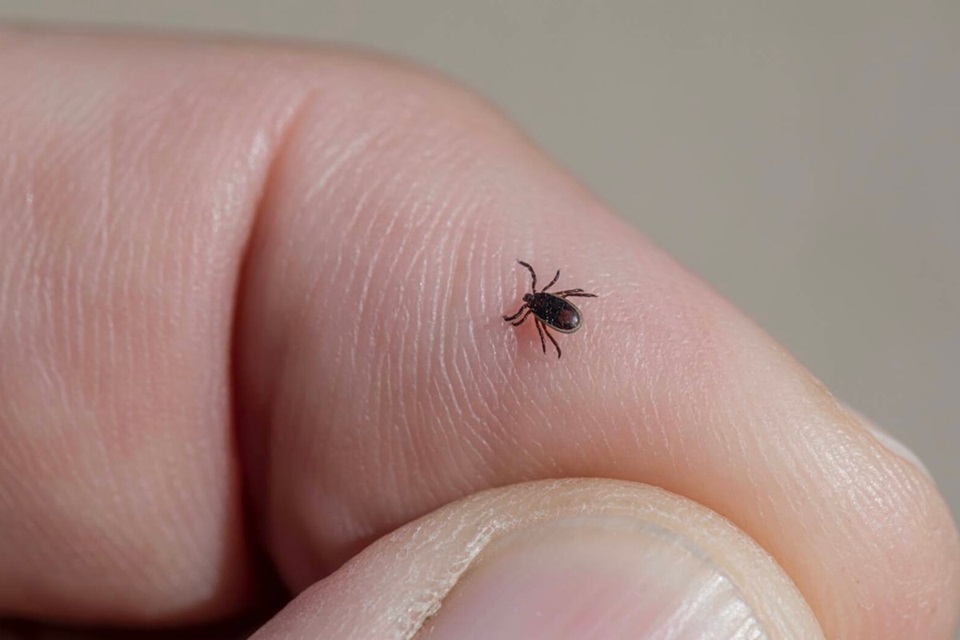Table of Contents
In Massachusetts, so many people contract Lyme disease from ticks that the Centers for Disease Control simply stopped counting new cases in 2017. The best information about Lyme disease in the Northeast that we have is that about 80,000 people every year in Massachusetts alone catch tick-borne diseases such as Lyme disease, anaplasmosis, and babesiosis, and only about one in seven gets timely treatment.
Your family does not have to be part of those statistics. Here are 10 ways you can protect your family from the ticks that carry debilitating diseases in Metro West MA.
Check For Ticks Regularly
Check children, pets, and yourself for ticks after spending time outdoors. Ticks may stick to your clothes, or they may hide in armpits, in the groin, or on the scalp. Ticks most commonly attach to cats and dogs on the feet, neck, head, and ears. They may also attach themselves to the anus, or to webbing between the toes.
How Do You Get Rid Of A Tick?
Don’t twist the tick to pull it out. You need to remove the mouth of the tick to avoid infection. Always remove ticks with tweezers. If the mouth parts break off, remove them with tweezers, too.
Avoid Tick Hotspots
It’s OK to take a walk down a woodland trail, but you should avoid walking through tall grass or weeds or camping near thick underbrush.
Create Tick-Free Play Zones For Children & Pets
There are two steps for creating a backyard tick-free zone for the most vulnerable members of your family.
- Make sure you keep your grass trimmed, and you remove all tall weeds from your yard, and
- Line the perimeter of your yard with wood chips, preferably cedar chips, to repel ticks.
Gravel also makes an effective tick deterrent.
Keep Brush Controlled
Trim brushy undergrowth of trees and shrubs, so you don’t create a haven for ticks. Deer ticks do not crawl more than 18 to 24 inches above the ground. They cannot jump.
Wear Protective Clothing
When you hike in the woods, wear pants instead of shorts, and long sleeves instead of short sleeves or a tank top. Tuck your pants into your shoes.
Use Tick Repellents When You Hike In The Woods
DEET is an effective tick repellent, and the FDA has ruled that there are no health hazards from DEET as long as you do not swallow it. Picadrin and permethrin also keep ticks off your skin.
Add Plants That Repel Ticks To Your Landscape
Some of the most effective garden and landscape plants for tick prevention are:
- Chrysanthemum
- Garlic
- Geranium
- Lavender
- Lemongrass
- Marigold
- Mint
- Rosemary
- Rue
- Wormwood
Consider Putting Out Tick Tubes Around Your Yard
Treated cotton tick tubes can kill ticks while they are still nymphs.
Use Tick Control Products On Your Pets
Your vet can recommend the best tick prevention product for your pet.
Make Sure Ticks Don’t Get Into Your House
Ticks take their time moving from one place to another, but they can eventually find their way inside your house. A tick that has fed at least once can survive for up to four days in your home. Ticks prefer damp areas, such as sweaty clothes.
Change your clothes in your mud room or laundry room before you go into your house. Don’t carry ticks into your house with you. Seal cracks and crevices, especially around utility conduits, that allow ticks to directly enter your home.
When you start noticing ticks on pets or people, it’s time to Google for pest control near me. For serious cases, professional tick control in Metro West, MA is your best bet.





No Comments